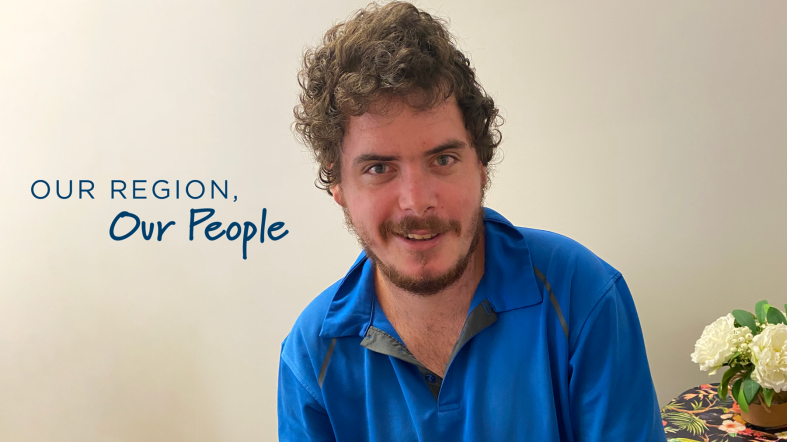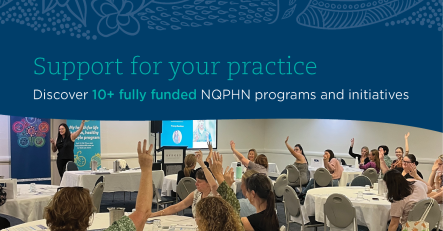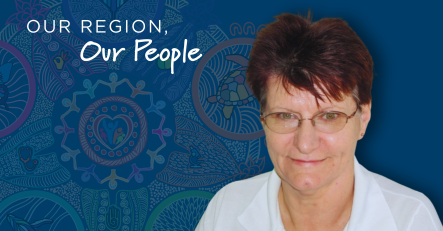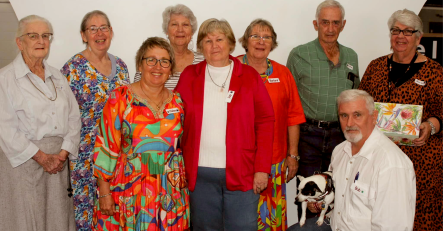Goal of stable employment is more realistic thanks to support program
Young Mackay father Brendan McKechnie was struggling with Attention Deficit Hyperactivity Disorder (ADHD), depression, and anxiety symptoms, and the impacts they were having on his day-to-day living.
Fortunately, he found the Continuity of Support (CoS) program, funded by Northern Queensland Primary Health Network, and operated by selectability in Mackay.
The 26-year-old first started in the Day-to-Day Living (D2DL) program five years ago and progressed to CoS.
“I was a heavy alcoholic and had health issues that came along with that. I have ADHD and borderline personality disorder as well,” Mr McKechnie said.
“I was asked if I was interested in getting some more support by another service I was engaged with, and I basically said that I would give it a go.
“I have been helped by a lot of different staff over the years. There have been a few different support workers and a couple of different people who were managing the program. I also got to continue with group support at the Mackay Horizon Clubhouse through selectability.
“The individual supports have been the most helpful. I usually get the support workers to help me with getting grocery shopping done, they helped me to access other support services, and they have helped me to stick to my recovery plan and stop drinking so much.”
Mr McKechnie said the program had been a great help.
“I don’t have problematic drinking anymore. I have made good connections. I have a baby and partner now and I am working towards getting a job,” Mr McKechnie said.
“The program has helped me get motivated and helped me to connect with places where I can get support to get a job. I have a White Card (construction) now and I am studying to get a standard 11 and get a job in the mines.
“Finding and maintaining stable employment has previously been a significant issue for me because my mental health has been a significant barrier to success.”
Mr McKechnie recommended the program to others.
“I would say that if it wasn’t for this program and the people in it, I would still be in the same bad situation that I was in five years ago,” Mr McKechnie said.
Program coordinator Stacy Irwin said the flexibility of the service provided to Mr McKechnie supported his engagement in group activities, one-on-one supports and service navigation.
“One highlight for Brendan has been the opportunity to engage in psychoeducational workshops aimed at improving resilience building capacity and a better understanding of mental wellbeing,” Ms Irwin said.
“Recently, Brendan had the opportunity to engage with a group-based workshop with an individual support worker.
“The support worker was essential for supporting Brendan’s understanding of the workshop content, being a sounding board for the clarification of key points, companionship to ease anxiety in a new setting with unfamiliar faces, and essential transport to and from the workshop.
“The workshop content was focussed on upskilling Queenslanders for work and supporting them to overcome barriers to employment.”
CoS funding is used to support and/or mentor participants of the former Personal Helpers and Mentors (PHaMs) and Day-to-Day Living (D2DL) programs who have tested for eligibility but were ineligible for support from the National Disability Insurance Scheme (NDIS).
The support has enabled participants to continue to work towards and achieve goals in their Individual Recovery Plans, assist participants to make and attend appointments, manage daily tasks, facilitate transport, address barriers to social and economic participation, secure stable housing, improve personal, parenting or vocational skills, in line with the previous objectives of the PHaMs program and the D2DL program (September 2017).







